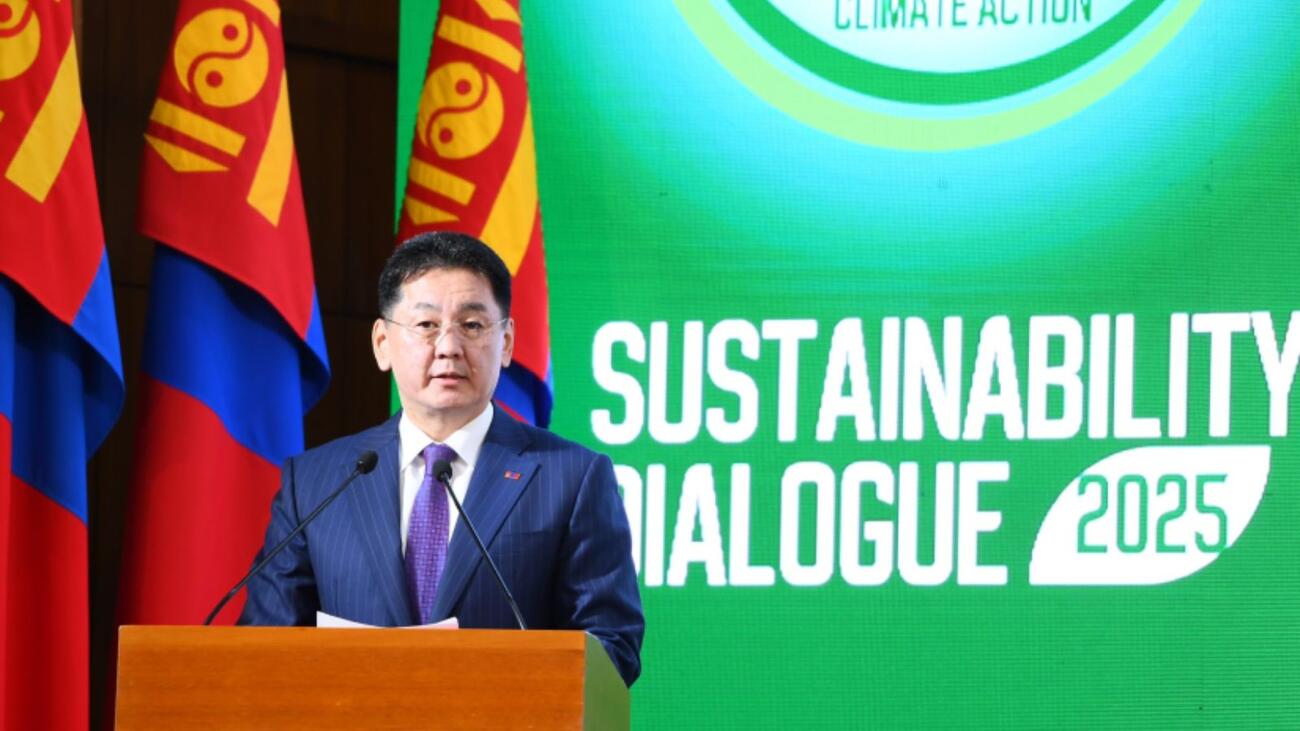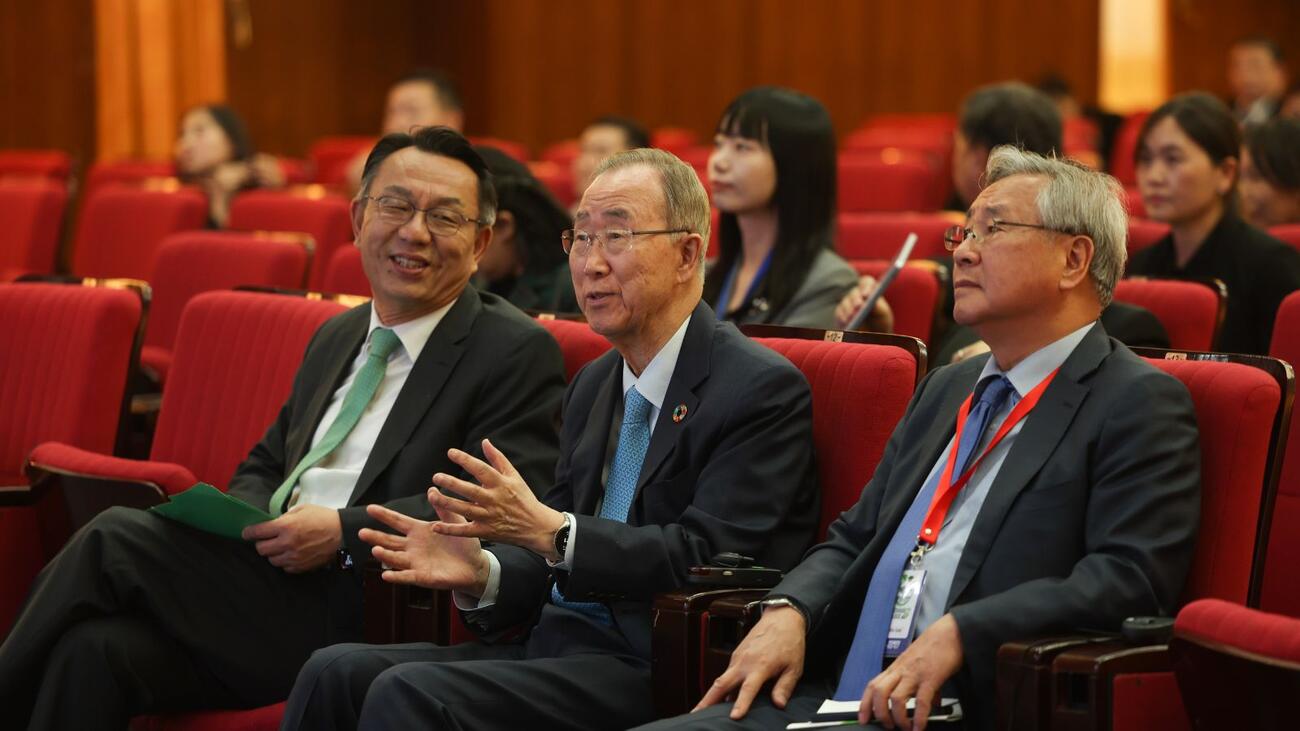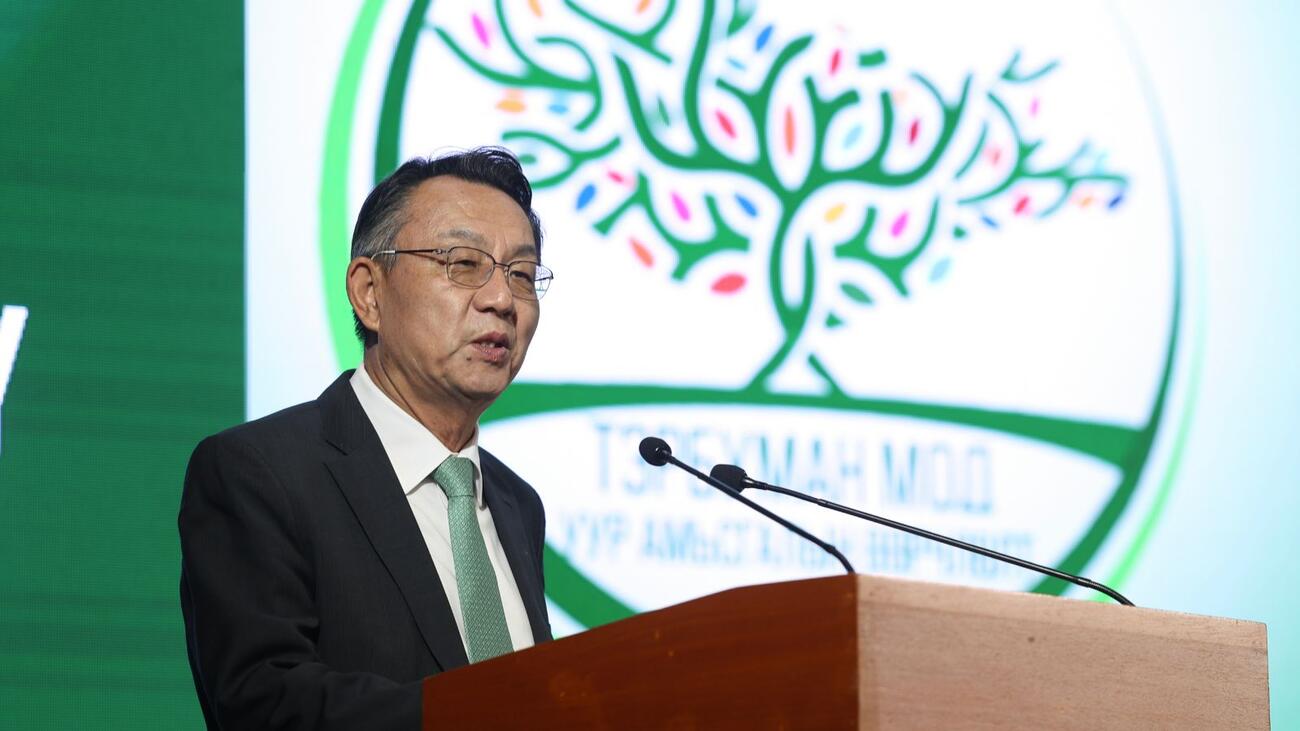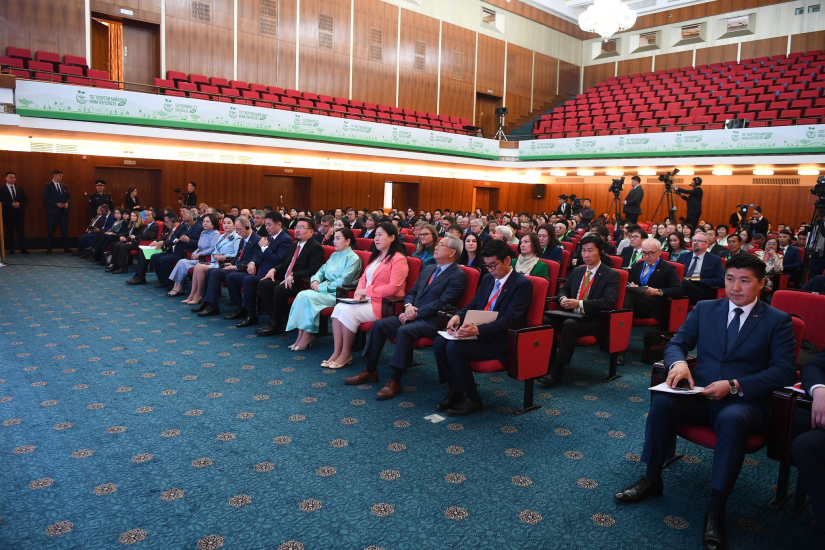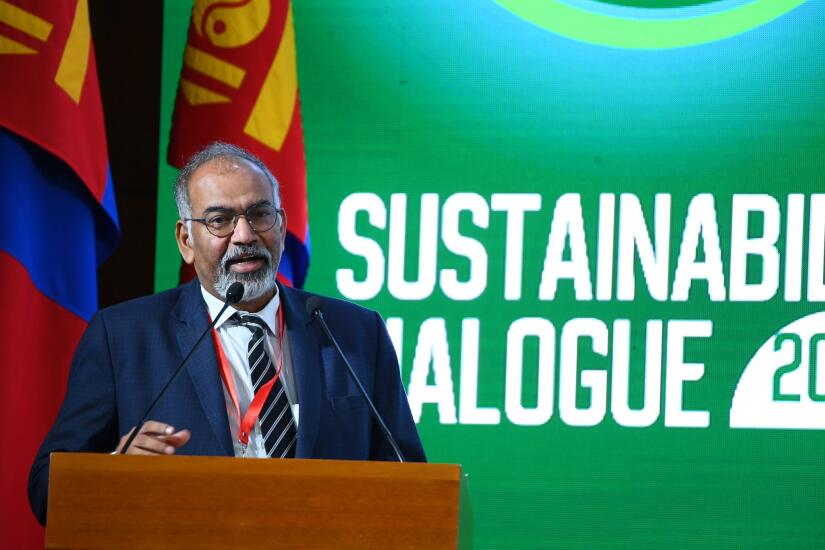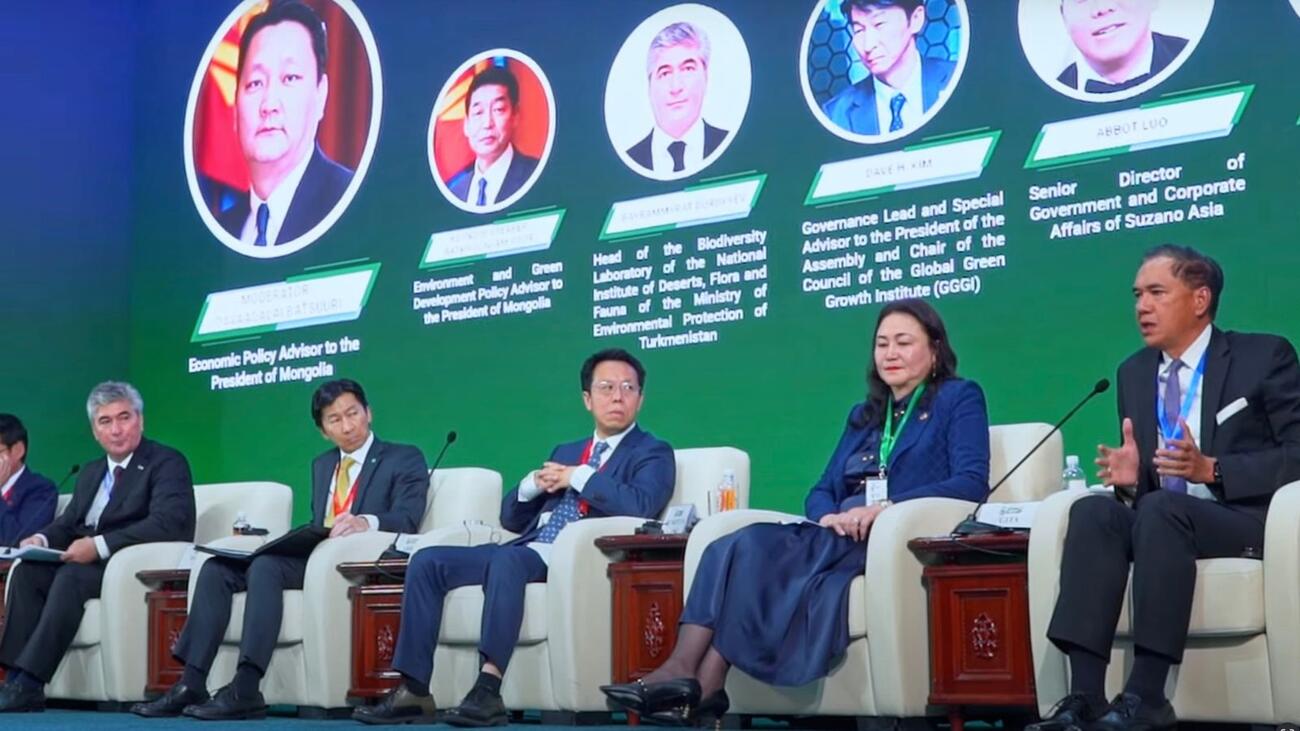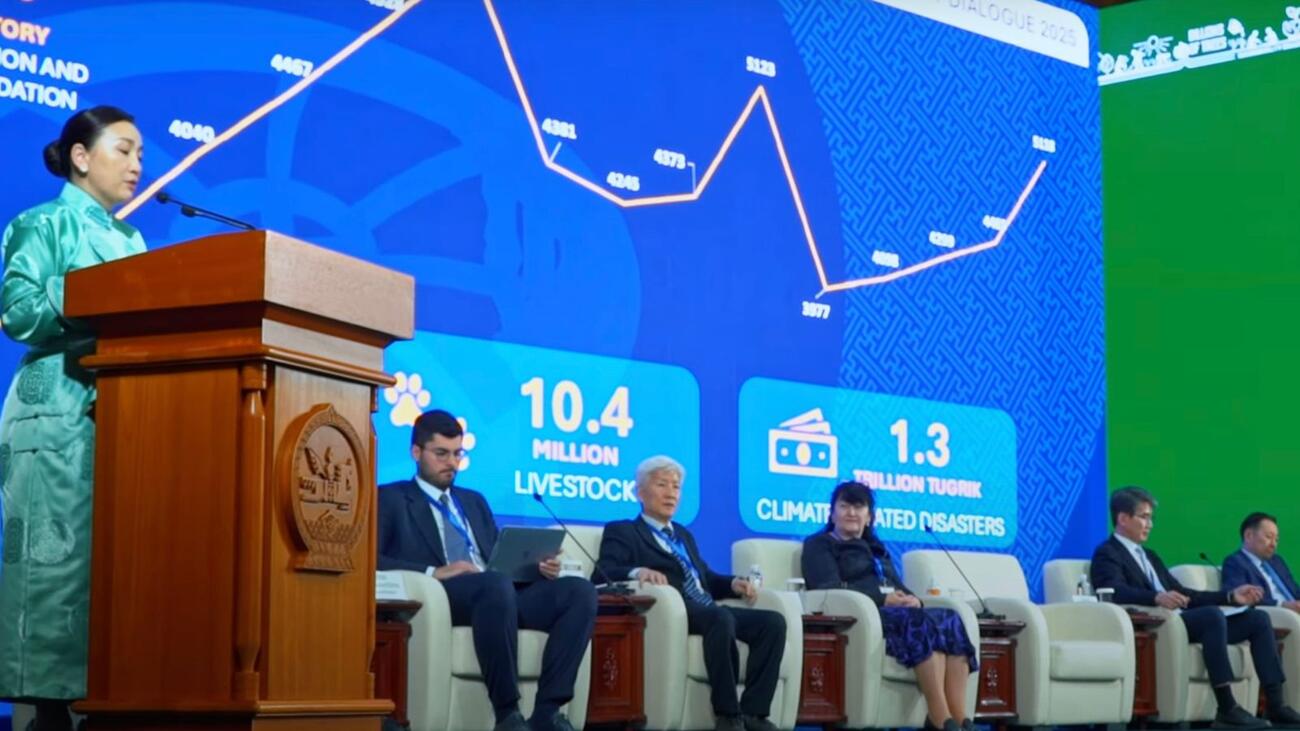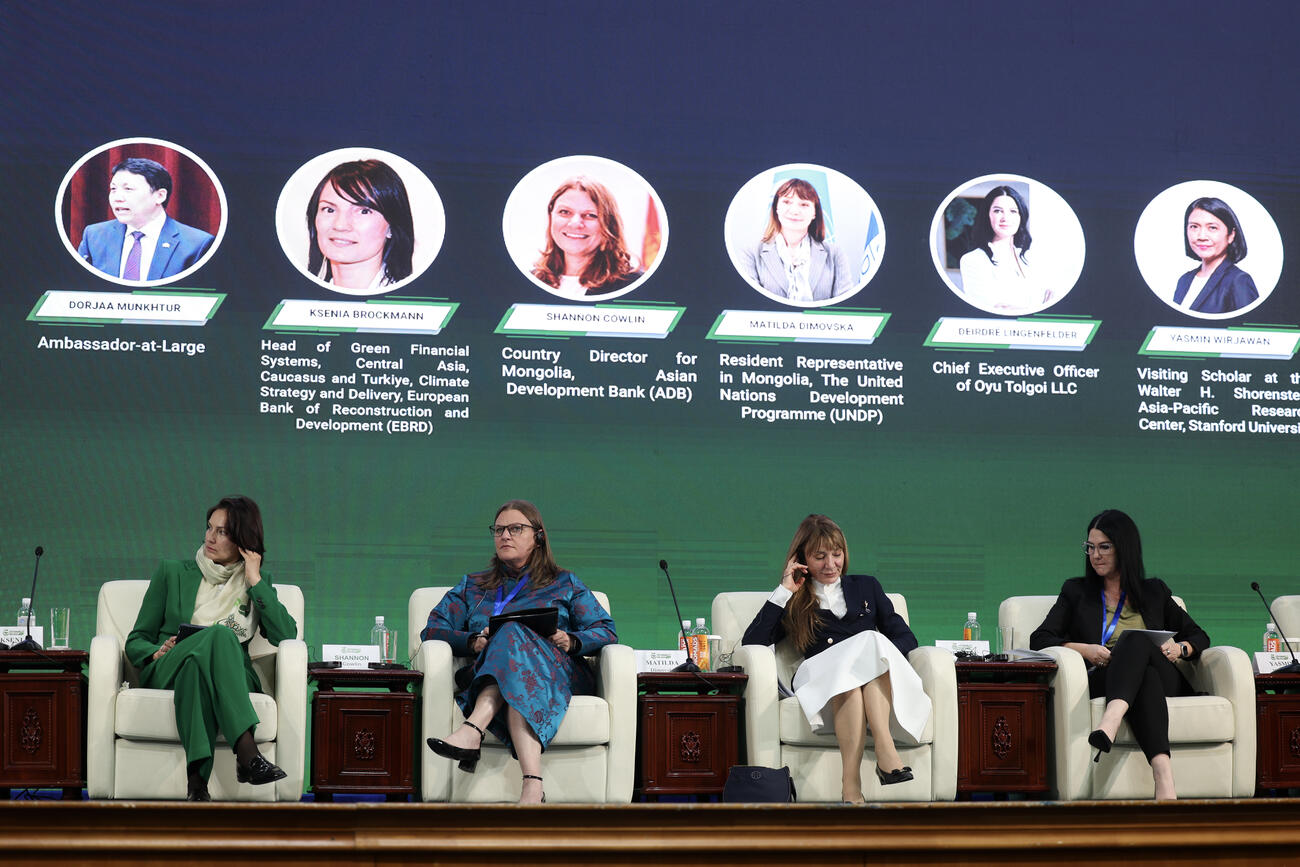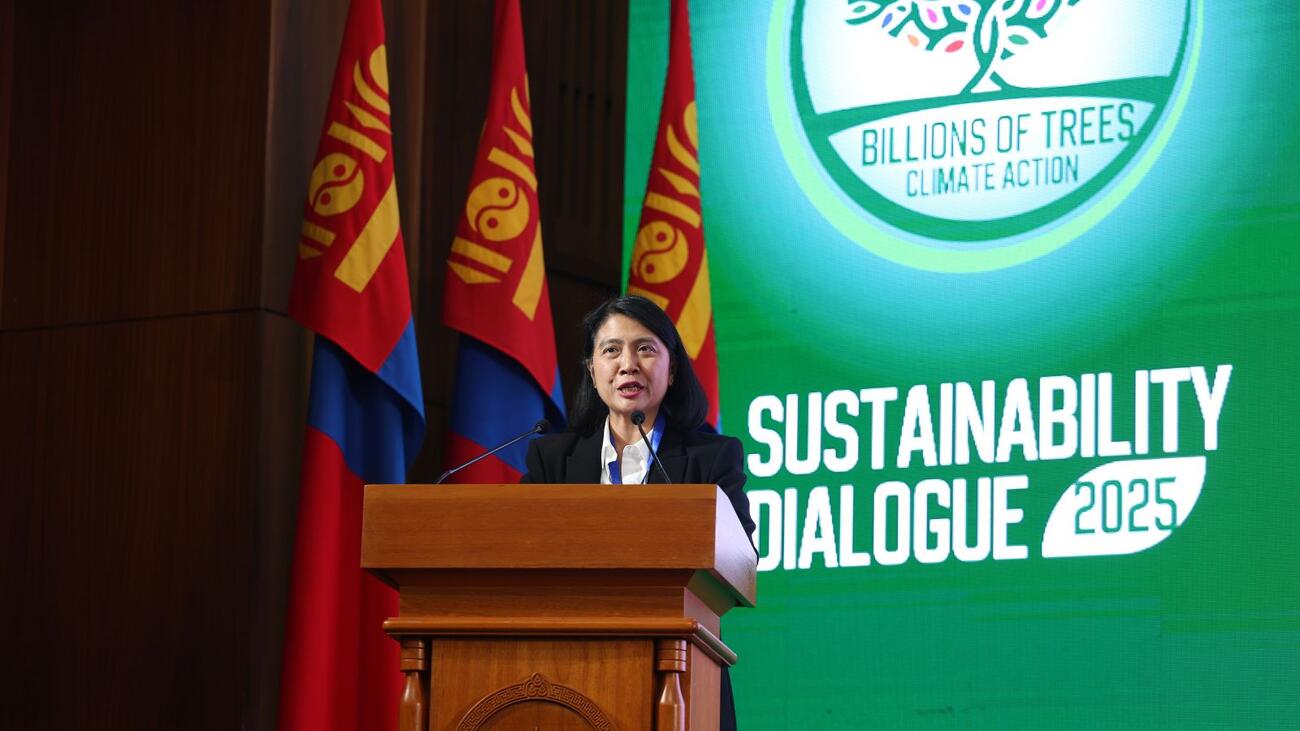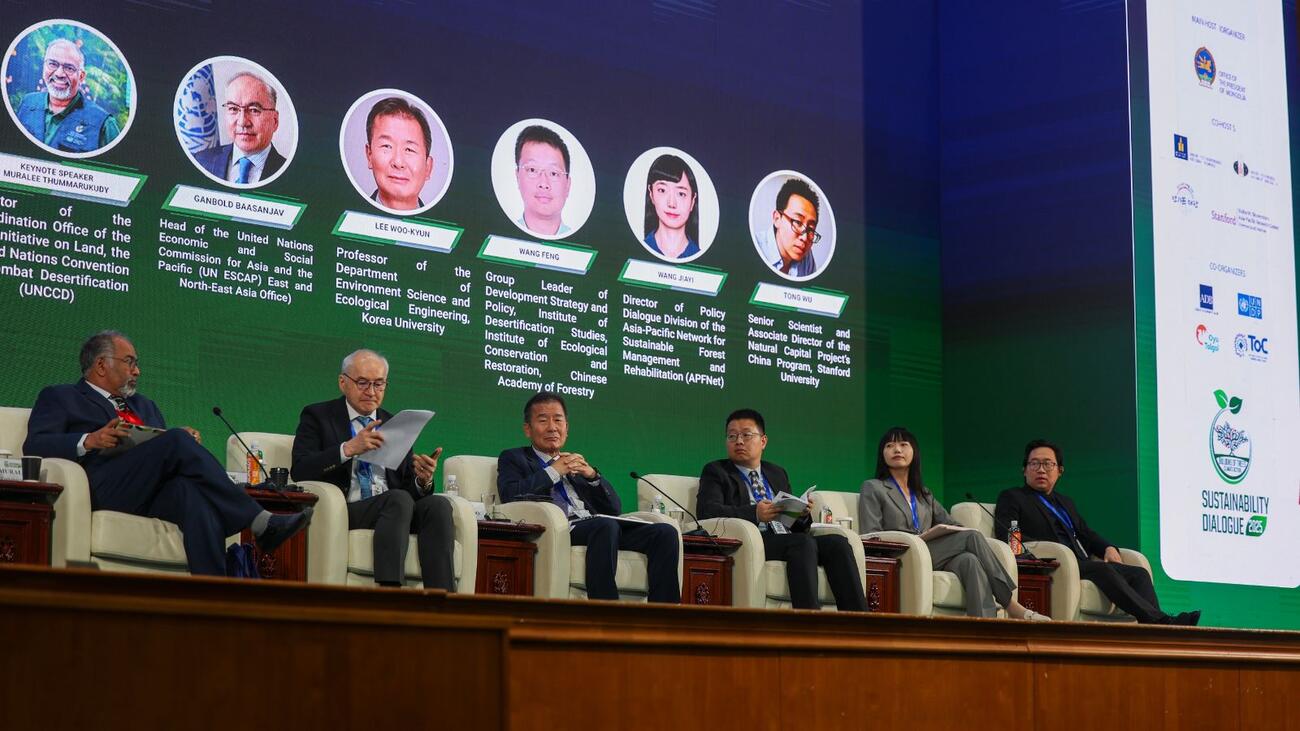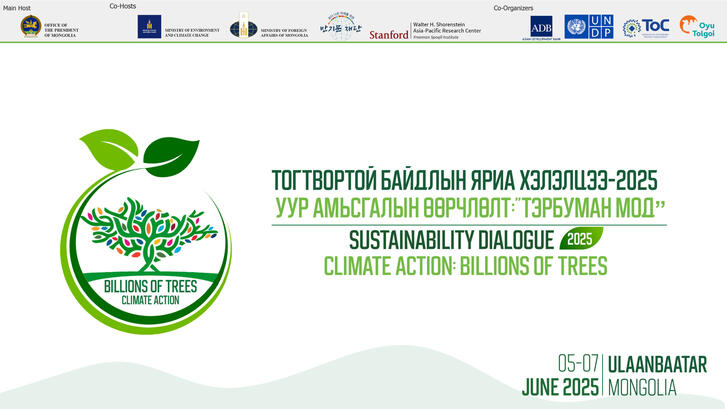At Mongolia Sustainability Dialogue, APARC Advances Regional Cooperation on Climate Action
At Mongolia Sustainability Dialogue, APARC Advances Regional Cooperation on Climate Action
The Sustainability Dialogue 2025 on “Climate Action: Billions of Trees” gathered policymakers, academics, private sector leaders, and civil society representatives in Ulaanbaatar to expedite the implementation of Sustainable Development Goal 13 by strengthening Asia-Pacific regional cooperation and facilitating research-policy partnerships.
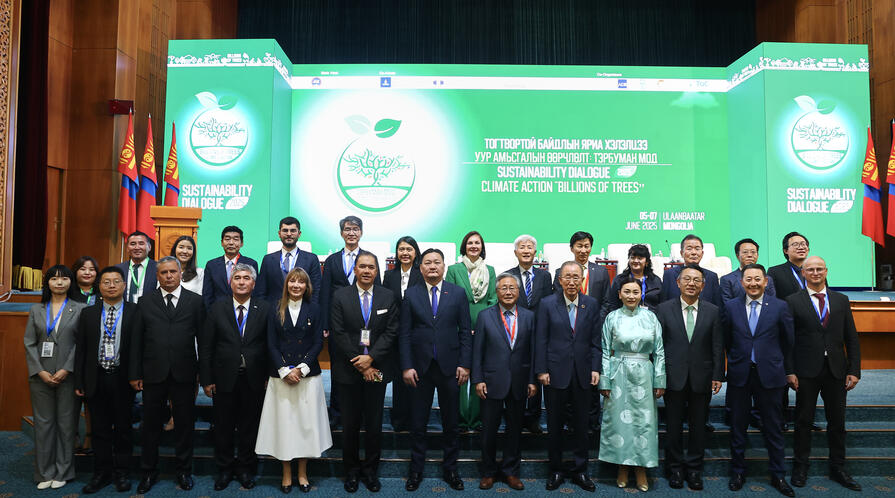
Progress on climate action remains uneven in Asia-Pacific nations. The number of natural disasters and levels of greenhouse gas emissions across the region are rising, while climate targets are alarmingly backsliding. Against this backdrop, Stanford University’s Walter H. Shorenstein Asia-Pacific Research Center (APARC) joined the Office of the President of Mongolia and the Ban Ki-moon Foundation for a Better Future in convening the Sustainability Dialogue 2025 on “Climate Action: Billions of Trees.”
Hosted by the Office of the President of Mongolia and held at the State Palace in Ulaanbaatar on June 6, 2025, the dialogue brought together senior policymakers, academics, private sector leaders, and civil society representatives to accelerate collaborative climate solutions and strengthen regional partnerships for sustainable development, focusing on Sustainable Development Goal 13: Climate Action.
This event builds on the momentum of prior convenings as part of the Trans-Pacific Sustainability Dialogue, a policy research initiative launched by APARC and the Ban Ki-moon Foundation in 2022 to accelerate the implementation of the United Nations-adopted 2030 Agenda for Sustainable Development by spurring research and policy partnerships between experts from the United States and Asia.
Sign up for APARC newsletters to receive our event invitations and guest speaker insights >
The dialogue’s opening session featured remarks by President Khurelsukh Ukhnaa of Mongolia; Ban Ki-moon, the 8th Secretary-General of the United Nations; and Gi-Wook Shin, APARC director. President Khurelsukh underscored Mongolia’s ambition to reach net-zero greenhouse gas emissions by 2050 and highlighted the significance of the national “Billion Trees” campaign. Mr. Ban stressed the necessity of international cooperation in facing intensifying climate threats, and Professor Shin noted the Asia-Pacific region’s leadership in driving successful models of transnational cooperation.
If mobilized wisely, this kind of leadership “can yield transformative results toward a sustainable Asia-Pacific future and pave pathways to overcome the most persistent sustainability challenges elsewhere,” Shin said.
Policy Priorities: Climate Financing, Capacity, and Cooperation
The dialogue’s first session focused on climate financing – an urgent issue for countries seeking to meet climate targets without compromising development priorities. Session participants from the Ministry of Environmental Protection of Turkmenistan, Global Green Growth Institute, Suzano Asia, and Khan Bank explored ways to operationalize the $100 billion annual funding goal set by developed nations under the United Nations Framework Convention on Climate Change.
The President of Mongolia’s Environment and Green Development Policy Advisor, Batkhuu Nyam-Osor, opened the session with a call for improved access mechanisms, gender-sensitive and inclusive implementation frameworks, and support pipelines aligned with global financing in countries that are climate vulnerable. Former Minister of Trade of Indonesia Gita Wirjawan – a former visiting scholar at APARC and a current visiting scholar at Stanford's Precourt Institute for Energy – emphasized the need for aligning capital markets with climate aspirations, urging countries to translate uncertainties into measurable risks to unlock liquidity and overcome financial barriers for scalable mitigation and adaptation solutions.
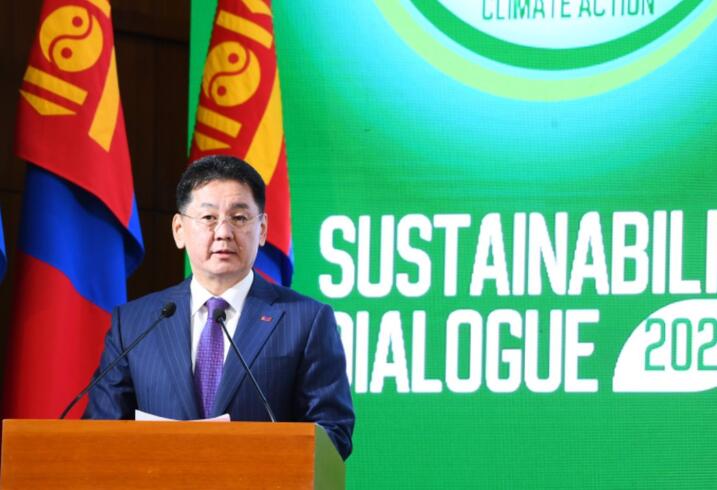
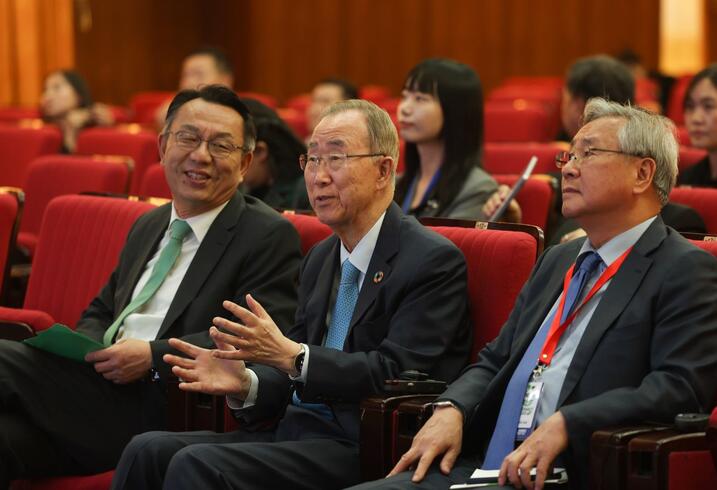
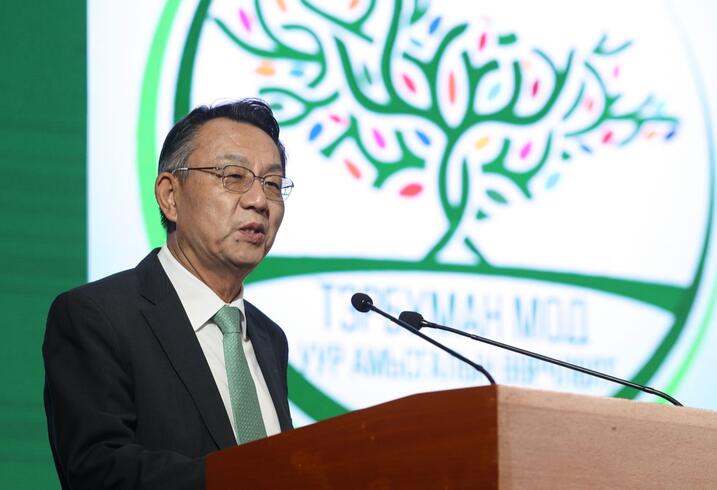
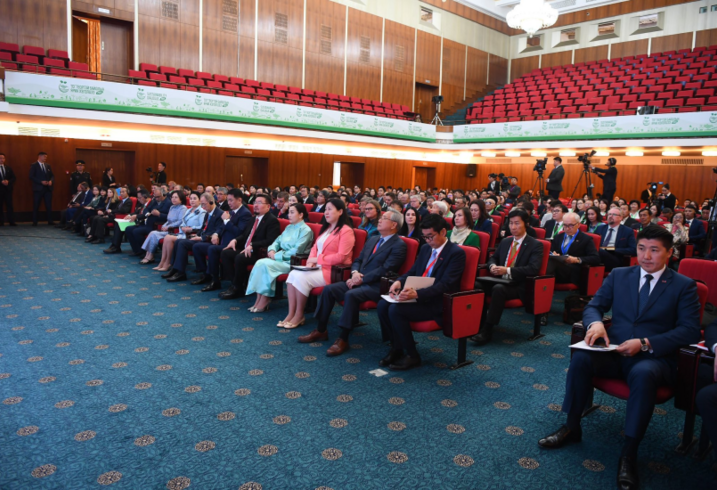
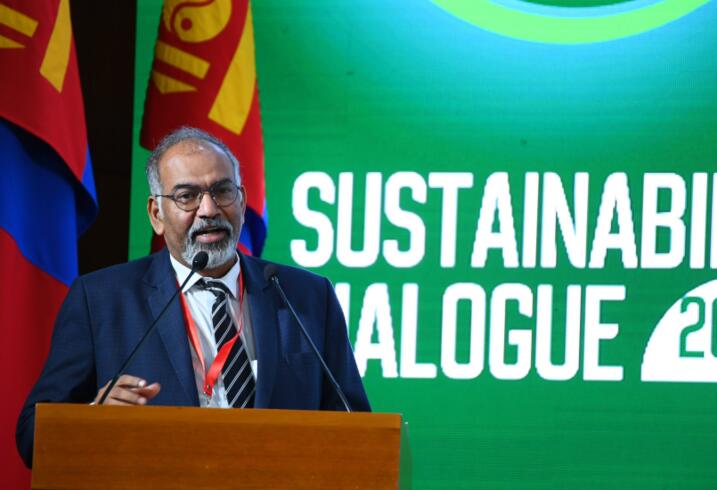
The second session, moderated by Alex Heikens, former UNICEF representative in Mongolia and Azerbaijan, addressed human and institutional capacity building, especially in education and knowledge transfer. Keynote speaker Bulgantuya Khurelbaatar, deputy chairwoman of the Parliament of Mongolia, called for stronger collaborative efforts and institutional commitment in empowering communities to respond to attainable climate goals. The panelists – including experts from Correggio Consulting, the Conference on Interaction and Confidence Building Measures in Asia (CICA), and faculty from Ewha Womans University, Yonsei University, and the University of Pécs – examined commercial, legal, and development aid pathways to improving resource management, mobilize climate investments, and enhance decision-making and capacity at both local and national levels.
Afternoon discussions centered on regional sustainability partnerships. A session on strengthening climate resiliency through regional cooperation featured keynote remarks by Mongolia’s Ambassador-at-Large Dorjaa Munkhtur. Panelists from the Asian Development Bank (ADB), European Bank for Reconstruction and Development (EBRD), Oyu Tolgoi LLC, and UNDP shared institutional perspectives on scaling nature-based solutions through gender and economic inclusion, transparency, and integrative approaches.
Focusing on inclusive public-private partnerships, Yasmin Wirjawan, a visiting scholar at APARC, explained that targeted interventions must account for demographic, technological, and digital shifts to promote coordinated, community-driven, and evidence-based climate policies and responses. Wirjawan’s contribution reflected APARC’s growing emphasis on interdisciplinary research and scholar-practitioner collaboration to shape climate governance.
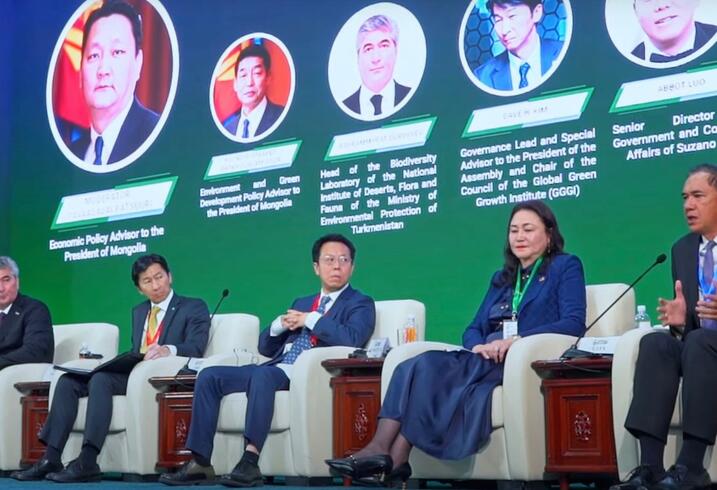
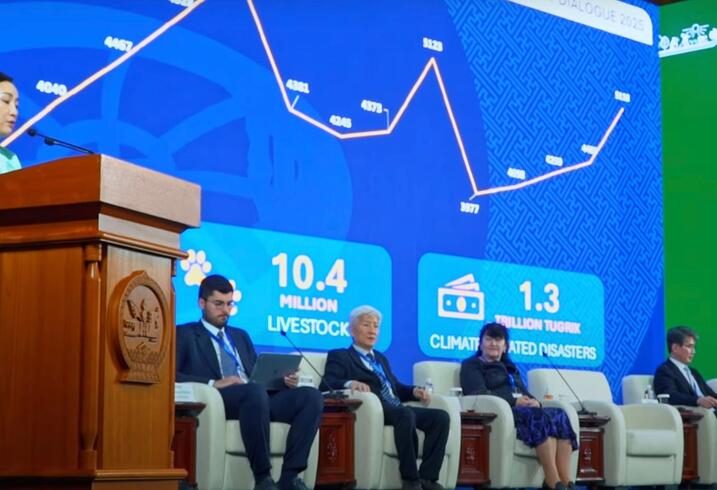
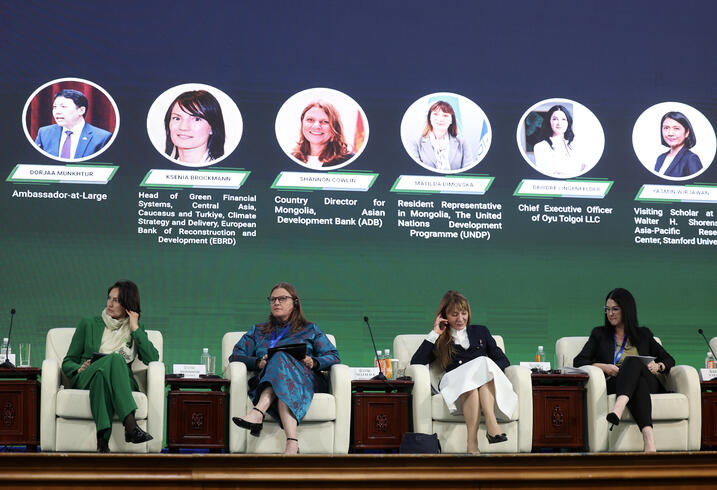
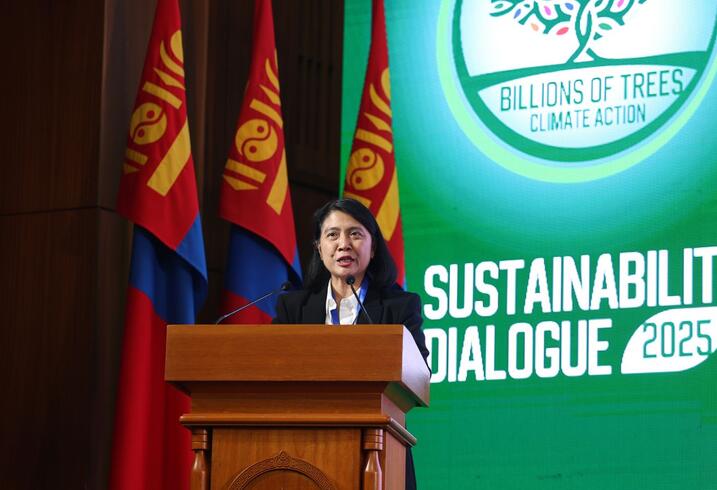
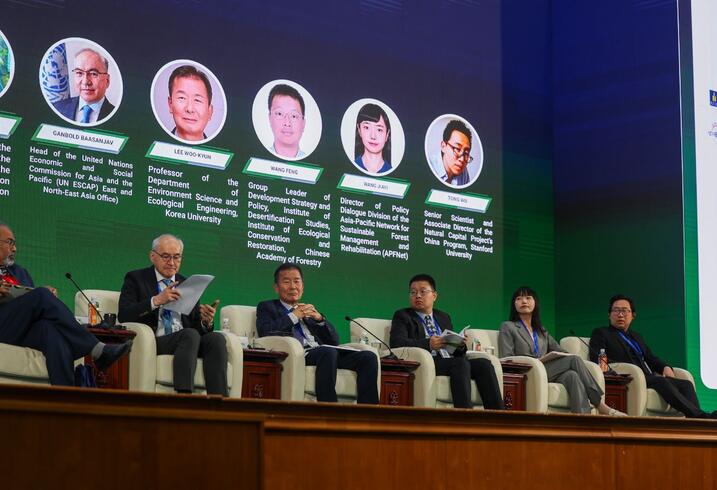
The day concluded with a session on land degradation and the integration of ecosystem restoration into national climate strategies. Keynote speaker Muralee Thummarukudy, director of the Coordination Office of the G20 Initiative on Land, the United Nations Convention to Combat Desertification, underscored the vital role of terrestrial ecosystems in sustaining biodiversity, water resources, food security, climate regulation, air quality, human health, recreation, and other essential services. Panelists from the Asia-Pacific Network for Sustainable Forest Management and Rehabilitation, Chinese Academy of Forestry, Korea University, and United Nations Economic and Social Commission for Asia and the Pacific centered on strategies for combating desertification through land-use planning, sustainable forest management, and reforestation initiatives. All these strategies, they said, require integrating regional dialogue, enhancing data sharing, and strengthening capacity building.
Tong Wu, senior scientist and associate director of the China Program at Stanford’s Natural Capital Project, argued that nature should be recognized as a form of infrastructure. For example, valuing the goods and services of standing forests includes benefits like carbon sequestration, heat mitigation, reduced health risks, and storm surge protection. The session echoed the dialogue’s central message: environmental protection and restoration are inseparable from climate resilience and sustainable livelihoods.
Sustaining the Momentum
In closing, Professor Shin acknowledged the setbacks in climate action, including the Trump administration’s withdrawal of the United States from the Paris Climate Agreement, reversing critical federal-level efforts to confront the climate crisis, and upending climate investments. Yet, this is not the end of the story, Shin said. APARC, like others across the United States, “will continue to advance policy-relevant research that empowers decision-makers to implement the sustainability agenda, prepare the next generation of climate action leaders, and support regional and global collaboration to facilitate ambitious climate solutions.”
As the window to avoid the worst of climate chaos narrows, platforms like the Trans-Pacific Sustainability Dialogue are vital in facilitating pragmatic solutions rooted in research-policy bridging and regional cooperation.

